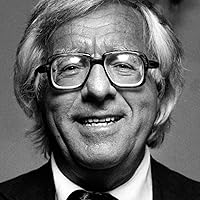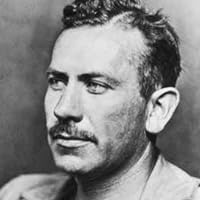Burial Quotes
Quotes tagged as "burial"
Showing 1-30 of 102

“We're going to meet a lot of lonely people in the next week and the next month and the next year. And when they ask us what we're doing, you can say, We're remembering. That's where we'll win out in the long run. And someday we'll remember so much that we'll build the biggest goddamn steamshovel in history and dig the biggest grave of all time and shove war in it and cover it up.”
― Fahrenheit 451
― Fahrenheit 451

“When people die they are sometimes put into coffins, which means that they don't mix with the earth for a very long time until the wood of the coffin rots.
But Mother was cremated. This means that she was put into a coffin and burned and ground up and turned into ash and smoke. I do not know what happens to the ash and I couldn't ask at the creamatorium because I didn't go to the funeral. But the smoke goes out of the chimney and into the air and sometimes I look up and I think that there are molecules of Mother up there, or in clouds over Africa or the Antarctic, or coming down as rain in the rain forests in Brazil, or snow somewhere.”
― The Curious Incident of the Dog in the Night-Time
But Mother was cremated. This means that she was put into a coffin and burned and ground up and turned into ash and smoke. I do not know what happens to the ash and I couldn't ask at the creamatorium because I didn't go to the funeral. But the smoke goes out of the chimney and into the air and sometimes I look up and I think that there are molecules of Mother up there, or in clouds over Africa or the Antarctic, or coming down as rain in the rain forests in Brazil, or snow somewhere.”
― The Curious Incident of the Dog in the Night-Time

“O Earth, lie heavily upon her eyes;
Seal her sweet eyes weary of watching Earth;
Lie close around her; leave no room for mirth
With its harsh laughter, nor for sound of sighs.
She hath no questions, she hath no replies.”
― The Virgin Suicides
Seal her sweet eyes weary of watching Earth;
Lie close around her; leave no room for mirth
With its harsh laughter, nor for sound of sighs.
She hath no questions, she hath no replies.”
― The Virgin Suicides

“The more death, the more birth. People are entering, others are exiting. The cry of a baby, the mourning of others. When others cry, the other are laughing and making merry. The world is mingled with sadness, joy, happiness, anger, wealth, poverty, etc.”
―
―

“If I were to believe in God enough to call him a murderer, then I might also believe enough that he, as a spirit, exists beyond death; and therefore only he could do it righteously. For the physical being kills a man and hatefully sends him away, whereas God, the spiritual being, kills a man and lovingly draws him nigh.”
― Healology
― Healology

“I remember that day in early May after Le Vesconte's and Private Pilkington's brief joint burial service, one of the men suggested that we name the small spur of land where they were buried "Le Vesconte Point," but Captain Crozier vetoed that idea, saying that if we named every place where one of us might end up buried after the dead person there, we'd run out of land before we ran out of names.”
― The Terror
― The Terror

“Pa said, "Won't you say a few words? Ain't none of our folks ever been buried without a few words."
Connie led Rose of Sharon to the graveside, she reluctant. "You got to," Connie said. "It ain't decent not to. It'll jus' be a little.
The firelight fell on the grouped people, showing their faces and their eyes, dwindling on their dark clothes.All the hats were off now. The light danced, jerking over the people.
Casy said, It'll be a short one." He bowed his head, and the others followed his lead. Casy said solemnly, "This here ol' man jus' lived a life an' just died out of it. I don't know whether he was good or bad, but that don't matter much. He was alive, an' that's what matters. An' now his dead, an' that don't matter. Heard a fella tell a poem one time, an' he says 'All that lives is holy.' Got to thinkin', an' purty soon it means more than the words says. An' I woundn' pray for a ol' fella that's dead. He's awright. He got a job to do, but it's all laid out for'im an' there's on'y one way to do it. But us, we got a job to do, an' they's a thousan' ways, an' we don' know which one to take. An' if I was to pray, it'd be for the folks that don' know which way to turn. Grampa here, he got the easy straight. An' now cover 'im up and let'im get to his work." He raised his head.”
― The Grapes of Wrath
Connie led Rose of Sharon to the graveside, she reluctant. "You got to," Connie said. "It ain't decent not to. It'll jus' be a little.
The firelight fell on the grouped people, showing their faces and their eyes, dwindling on their dark clothes.All the hats were off now. The light danced, jerking over the people.
Casy said, It'll be a short one." He bowed his head, and the others followed his lead. Casy said solemnly, "This here ol' man jus' lived a life an' just died out of it. I don't know whether he was good or bad, but that don't matter much. He was alive, an' that's what matters. An' now his dead, an' that don't matter. Heard a fella tell a poem one time, an' he says 'All that lives is holy.' Got to thinkin', an' purty soon it means more than the words says. An' I woundn' pray for a ol' fella that's dead. He's awright. He got a job to do, but it's all laid out for'im an' there's on'y one way to do it. But us, we got a job to do, an' they's a thousan' ways, an' we don' know which one to take. An' if I was to pray, it'd be for the folks that don' know which way to turn. Grampa here, he got the easy straight. An' now cover 'im up and let'im get to his work." He raised his head.”
― The Grapes of Wrath

“THE BARROW
In this high field strewn with stones
I walk by a green mound,
Its edges sheared by the plough.
Crumbs of animal bone
Lie smashed and scattered round
Under the clover leaves
And slivers of flint seem to grow
Like white leaves among green.
In the wind, the chestnut heaves
Where a man's grave has been.
Whatever the barrow held
Once, has been taken away:
A hollow of nettles and dock
Lies at the centre, filled
With rain from a sky so grey
It reflects nothing at all.
I poke in the crumbled rock
For something they left behind
But after that funeral
There is nothing at all to find.
On the map in front of me
The gothic letters pick out
Dozens of tombs like this,
Breached, plundered, left empty,
No fragments littered about
Of a dead and buried race
In the margins of histories.
No fragments: these splintered bones
Construct no human face,
These stones are simply stones.
In museums their urns lie
Behind glass, and their shaped flints
Are labelled like butterflies.
All that they did was die,
And all that has happened since
Means nothing to this place.
Above long clouds, the skies
Turn to a brilliant red
And show in the water's face
One living, and not these dead."
— Anthony Thwaite, from The Owl In The Tree”
―
In this high field strewn with stones
I walk by a green mound,
Its edges sheared by the plough.
Crumbs of animal bone
Lie smashed and scattered round
Under the clover leaves
And slivers of flint seem to grow
Like white leaves among green.
In the wind, the chestnut heaves
Where a man's grave has been.
Whatever the barrow held
Once, has been taken away:
A hollow of nettles and dock
Lies at the centre, filled
With rain from a sky so grey
It reflects nothing at all.
I poke in the crumbled rock
For something they left behind
But after that funeral
There is nothing at all to find.
On the map in front of me
The gothic letters pick out
Dozens of tombs like this,
Breached, plundered, left empty,
No fragments littered about
Of a dead and buried race
In the margins of histories.
No fragments: these splintered bones
Construct no human face,
These stones are simply stones.
In museums their urns lie
Behind glass, and their shaped flints
Are labelled like butterflies.
All that they did was die,
And all that has happened since
Means nothing to this place.
Above long clouds, the skies
Turn to a brilliant red
And show in the water's face
One living, and not these dead."
— Anthony Thwaite, from The Owl In The Tree”
―

“Whilst the wolflets bayed,
A grave was made,
And then with the strokes of a silver spade,
It was filled to make a mound.
And for two cold days and three long nights,
The father tended that holy plot;
And stayed by where his wife was laid, In the grave within the ground.”
― Cities & Countries
A grave was made,
And then with the strokes of a silver spade,
It was filled to make a mound.
And for two cold days and three long nights,
The father tended that holy plot;
And stayed by where his wife was laid, In the grave within the ground.”
― Cities & Countries

“A sematary," I say. "A what?" Viola says, looking round at all the square stones marking out their graves. Must be a hundred, maybe two, in orderly rows and well-kept grass. Settler life is hard and it's short and lotsa New World people have lost the battle.
"It's a place for burying dead folk," I say.
Her eyes widen. "A place for doing what?"
"Don't people die in space?" I ask.
"Yeah," she says. "But we burn them. We don't put them in holes." She crosses her arms around herself, mouth and forehead frowning, peering around at the graves. "How can this be sanitary?”
― The Knife of Never Letting Go
"It's a place for burying dead folk," I say.
Her eyes widen. "A place for doing what?"
"Don't people die in space?" I ask.
"Yeah," she says. "But we burn them. We don't put them in holes." She crosses her arms around herself, mouth and forehead frowning, peering around at the graves. "How can this be sanitary?”
― The Knife of Never Letting Go

“The face of the dead man was concealed, of course, our customs not being those of the south, where corpses are carried to the grave in open coffins, that they might – one last time before slipping into the pit – be warmed by the light of the sun.”
― Prague Tales
― Prague Tales

“No! no! My engagement is with no bride--the worms! the worms expect me! I am a dead man--I have been slain by robbers--my body lies at Wurtzburg--at midnight I am to be buried--the grave is waiting for me--I must keep my appointment!”
― The Legend of Sleepy Hollow and Other Stories
― The Legend of Sleepy Hollow and Other Stories

“EMBALM, v.i. To cheat vegetation by locking up the gases upon which it feeds. By embalming their dead and thereby deranging the natural balance between animal and vegetable life, the Egyptians made their once fertile and populous country barren and incapable of supporting more than a meagre crew. The modern metallic burial casket is a step in the same direction, and many a dead man who ought now to be ornamenting his neighbour's lawn as a tree, or enriching his table as a bunch of radishes, is doomed to a long inutility. We shall get him after awhile if we are spared, but in the meantime, the violet and rose are languishing for a nibble at his gluteus maximus.”
― The Unabridged Devil's Dictionary
― The Unabridged Devil's Dictionary

“Anyway, they took her body to McBurney's Funeral Home in Motley. They'll be planting her tomorrow.”
― What's Eating Gilbert Grape
― What's Eating Gilbert Grape

“There is no antidote against the opium of time, which temporally considereth all things: our fathers find their graves in our short memories, and sadly tell us how we may be buried in our survivors. Gravestones tell truth scarce forty years. Generations pass while some trees stand, and old families last not three oaks.”
―
―

“. "Morgant?" Taran asked, turning a puzzled glance to Gwydion. "How can there be honor for such a man?"
"It is easy to judge evil unmixed," replied Gwydion. "But, alas, in most of us good and bad are closely woven as the threads on a loom; greater wisdom than mine is needed for the judging. King Morgant served the Sons of Don long and well. Until the thirst for power parched his throat, he was a fearless and noble lord. In battle he saved my life more than once. These things are part of him and cannot be put aside or forgotten. And so shall I honor Morgant, for what he used to be, and Ellidyr Prince of Pen-Llarcau for what he became".”
― The Black Cauldron
"It is easy to judge evil unmixed," replied Gwydion. "But, alas, in most of us good and bad are closely woven as the threads on a loom; greater wisdom than mine is needed for the judging. King Morgant served the Sons of Don long and well. Until the thirst for power parched his throat, he was a fearless and noble lord. In battle he saved my life more than once. These things are part of him and cannot be put aside or forgotten. And so shall I honor Morgant, for what he used to be, and Ellidyr Prince of Pen-Llarcau for what he became".”
― The Black Cauldron

“During a funeral, the corpse receives way more affection, love, or attention, from some people, than was ever received, from those people, by the person the corpse used to be.”
―
―

“The way to break the cycle and avoid embalming, the casket, the heavy vault, is something called green, or natural, burial. It is only available in certain cemeteries, but its popularity is growing as society continues to demand it. natural burial is what transpired with Edward Abbey's remains, minus the whole stealing-the-corpse and hightailing-it-into-the-desert-thing. The body goes straight into the ground, in a simple biodegradable shroud, with a rock to mark the location. It zips merrily through decomposition, shooting its atoms back into the universe to create new life. Not only is natural burial by far the most ecologically sound way to perish, it doubles down on the fear to fragmentation and loss of control. Making the choice to be naturally buried says, "Not only am I aware that I'm a helpless, fragmented mass of organic matter, I celebrate it. Vive la decay!”
― Smoke Gets in Your Eyes & Other Lessons from the Crematory
― Smoke Gets in Your Eyes & Other Lessons from the Crematory

“Olaf’s casket was carefully placed on canvas straps across the open grave, ready to be lowered with hand cranks. At the head stood the young minister who I felt certain, couldn’t wait until all of this was over. He mumbled a few unintelligible words that ended with “forever and ever, amen.” When he finished, I nodded to the two men to start lowering the casket on its final descent. All went well until halfway down one of the straps suddenly snapped, and with a thud Olie dropped headlong into the place of his eternal rest. The canvas strap had rotted and now the casket was jammed at an awkward angle in the grave.
Fortunately there was a tow-rope in the pick-up. I leaned over and balanced myself with one foot on the tilted casket and managed to pass the rope under it. Then with everyone’s cooperation and strength, we managed to level the casket and properly lower Olaf into his grave. Although happy may not be the right word, all of us were pleased to have this behind us. Before leaving, Captain Duffy suggested we go to the new hotel on the beach owned by a Belgian couple. Now with the money already set aside by the company for this occasion, the mood quickly changed from one of mourning to a celebration of Olaf’s life.”
―
Fortunately there was a tow-rope in the pick-up. I leaned over and balanced myself with one foot on the tilted casket and managed to pass the rope under it. Then with everyone’s cooperation and strength, we managed to level the casket and properly lower Olaf into his grave. Although happy may not be the right word, all of us were pleased to have this behind us. Before leaving, Captain Duffy suggested we go to the new hotel on the beach owned by a Belgian couple. Now with the money already set aside by the company for this occasion, the mood quickly changed from one of mourning to a celebration of Olaf’s life.”
―

“She taught me I didn't own things. I really liked the idea of possession. We don't own our mothers. We don't own our bodies or our land - maybe I'm unsure. We become the land when we are buried in it. Our grandmothers have been uprooted and shelved in boxes, place on slabs of plastic, or packed neatly in rooms or turned into artifact- all after proper burials. Indians aren't always allowed to rest in peace. I want to be buried in a bone garden with my ancestors someday. I'd like to belong to that.”
― Heart Berries
― Heart Berries

“Andrei rested on a bench directly in front of a grave that belonged to: 'A father, hard worker, and beloved friend.' He leaned back, resting in the cemetery, and with each second, his desire to know more about this man
'Yeah, he’s a father, hard worker, and beloved friend. Weren’t we all at some point? What’s his kink? The worst thing he’s done to a person? The greatest thing he’s good at?' he thought. That’s what Andrei wanted to know. Not titles the man himself would disapprove of. What good was a proper impression in a cemetery filled with thousands of proper impressions? One must be indecent. So Andrei closed his eyes and imagined the father who worked hard and was a beloved friend. Maybe his kink was that he needed to do it in public—in the restroom after a date or at church during mass. Maybe the worst thing he had ever done was work so hard for his family that he never once saw them. Maybe the best thing he was good at was giving gifts to his friends. Yes, that’s it. He never gave money or handed them gift cards, but instead gave his brothers exactly what filled them the most. One year, he gave a notebook to his buddy John with the same line written over and over in painful cursive. The line said: 'Happy Birthday, you get thirteen hours of my life' and repeated until you could see the traces of hand cramps squiggling for life on the forty-second page.
'What a good man,' imagined Andrei. 'Hell of a mate.”
― A Happy Ghost
'Yeah, he’s a father, hard worker, and beloved friend. Weren’t we all at some point? What’s his kink? The worst thing he’s done to a person? The greatest thing he’s good at?' he thought. That’s what Andrei wanted to know. Not titles the man himself would disapprove of. What good was a proper impression in a cemetery filled with thousands of proper impressions? One must be indecent. So Andrei closed his eyes and imagined the father who worked hard and was a beloved friend. Maybe his kink was that he needed to do it in public—in the restroom after a date or at church during mass. Maybe the worst thing he had ever done was work so hard for his family that he never once saw them. Maybe the best thing he was good at was giving gifts to his friends. Yes, that’s it. He never gave money or handed them gift cards, but instead gave his brothers exactly what filled them the most. One year, he gave a notebook to his buddy John with the same line written over and over in painful cursive. The line said: 'Happy Birthday, you get thirteen hours of my life' and repeated until you could see the traces of hand cramps squiggling for life on the forty-second page.
'What a good man,' imagined Andrei. 'Hell of a mate.”
― A Happy Ghost

“We cannot hope to live so long in our names, as some have done in their persons, one face of Janus holds no proportion unto the other. ’Tis too late to be ambitious. The great mutations of the world are acted, or time may be too short for our designes...We whose generations are ordained in this setting part of time, are providentially taken off from such imaginations.”
― Religio Medici / Urne-Buriall
― Religio Medici / Urne-Buriall
“Clemo, Nonini, Jua Cali wakianzisha Genge, ilishika but hawakuwa na clear plan. Now it's dead and burried with Mejja as the only survivor mwenye hata aliachana na Genge anafanya Kalpop sasa.”
―
―

“To understand who a person really was, what his or her life really meant, the speaker for the dead would have to explain their self-story— what they meant to do, what they actually did, what they regretted, what they rejoiced in. That's the story that we never know, the story that we never can know—and yet, at the time of death, it's the only story truly worth telling.”
― Speaker for the Dead
― Speaker for the Dead
All Quotes
|
My Quotes
|
Add A Quote
Browse By Tag
- Love Quotes 97k
- Life Quotes 75.5k
- Inspirational Quotes 72.5k
- Humor Quotes 43.5k
- Philosophy Quotes 29.5k
- Inspirational Quotes Quotes 27k
- God Quotes 26k
- Truth Quotes 23.5k
- Wisdom Quotes 23.5k
- Romance Quotes 23k
- Poetry Quotes 22k
- Death Quotes 20k
- Happiness Quotes 18.5k
- Life Lessons Quotes 18.5k
- Hope Quotes 18k
- Faith Quotes 18k
- Quotes Quotes 16.5k
- Inspiration Quotes 16.5k
- Spirituality Quotes 15k
- Religion Quotes 15k
- Motivational Quotes 15k
- Writing Quotes 14.5k
- Relationships Quotes 14.5k
- Life Quotes Quotes 14k
- Love Quotes Quotes 13.5k
- Success Quotes 13.5k
- Time Quotes 12.5k
- Motivation Quotes 12k
- Science Quotes 11.5k
- Knowledge Quotes 11k







